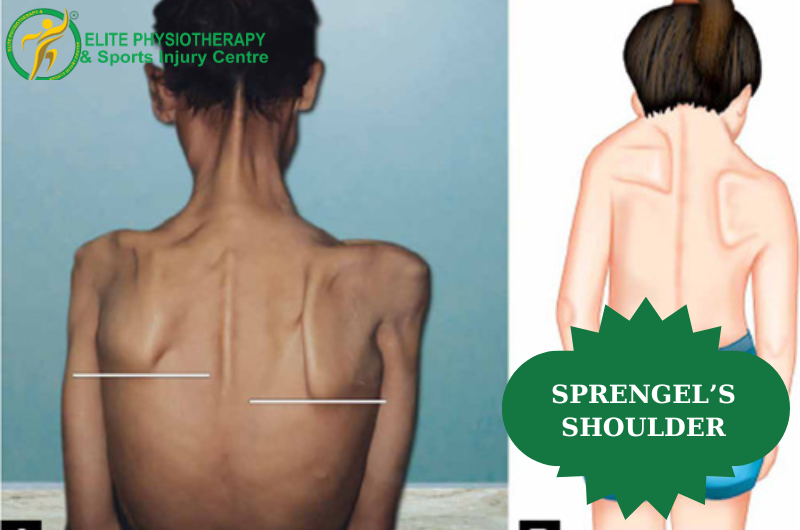
Sprengel’s Shoulder
Sprengel’s Shoulder is a congenital deformity where one shoulder blade (scapula) is higher on the back than the other. It is the most common congenital malformation of the shoulder and often involves limited motion in the affected area.
Questions
WHAT CAUSES SPRENGEL’S SHOULDER?
The exact cause of Sprengel’s Shoulder is not well understood, but it is thought to occur due to a disruption in the normal movement of the shoulder blade during embryonic development. Genetic factors may play a role in some cases.
WHO IS MOST LIKELY TO HAVE SPRENGEL’S SHOULDER?
Sprengel’s Shoulder is present at birth. It can occur as an isolated condition or may be associated with other syndromes such as Klippel-Feil syndrome, where there are congenital fusions of some of the cervical vertebrae.
WHAT ARE THE SYMPTOMS OF SPRENGEL’S SHOULDER?
The primary symptom is the abnormal elevation of the shoulder blade. This may be accompanied by a noticeable bump on the back where the elevated scapula is located. Limited movement and muscle weakness in the affected shoulder are also common symptoms.
HOW IS SPRENGEL’S SHOULDER DIAGNOSED?
Diagnosis usually occurs through physical examination and the observation of the high shoulder. Imaging studies like X-rays or MRI can confirm the diagnosis by showing the position of the scapula and assessing any associated abnormalities.
WHAT TREATMENT OPTIONS ARE AVAILABLE FOR SPRENGEL’S SHOULDER?
Treatment depends on the severity of the deformity and the age at diagnosis. Physical therapy may be recommended to improve range of motion and strength. In more severe cases, surgical procedures to reposition the scapula might be considered, especially if diagnosed early in life.
CAN SPRENGEL’S SHOULDER BE PREVENTED?
As a congenital condition, Sprengel’s Shoulder cannot be prevented. However, early diagnosis and treatment can help manage symptoms and improve functional outcomes.
WHAT IS THE PROGNOSIS FOR SOMEONE WITH SPRENGEL’S SHOULDER?
The prognosis for individuals with Sprengel’s Shoulder varies. Those with mild forms may have minimal functional limitations, while those with severe deformities might experience significant restrictions in shoulder movement. Surgical intervention can significantly improve the condition, particularly if performed at a young age.

